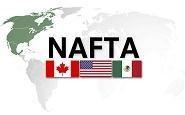Government/Policy

September 11, 2018
Democrats Challenge Lighthizer on Bilateral Negotiations
Written by Sandy Williams
The Trump administration’s negotiating objectives for NAFTA were challenged by Democrats on the House Ways and Means Committee this week. A Sept. 10 letter to U.S. Trade Representative Robert Lighthizer questioned whether the bilateral deal with Mexico was “in the spirit of the Trade Promotion Authority.”
The members said they were surprised by the formal notification to Congress of a trade deal with Mexico given that previously published objectives for NAFTA were specific to a trilateral deal.
“While we appreciate that it takes time to iron out the final details and text, we believe that it is not in the spirit of TPA to send Congress an official notification letter until all three parties have formally agreed to move forward together with an updated trilateral agreement,” said the seven Democrats in their letter to Lighthizer.
The group questioned how an informed report can be submitted to Congress by the Advisory Committee if it is unknown whether Canada will be part of the agreement. The Advisory Committee, comprised of 28 advisory committees representing public and private investments, must submit a report within 30 days of the Aug. 31 notification from USTR. The group requested clarification on whether the current plan is to submit a report on the U.S./Mexico deal and revise it if Canada joins, and, if so, will it allow time for the Advisory Committee to meet the 30-day deadline.
In addition, the full text of the agreement must be made public 60 days before signature. It is unclear whether it will be a U.S./Mexico trade agreement or one that includes Canada with any relative side letters.
“Trump is relying on bluster and bullying in a desperate attempt to get Congress to swallow his half-baked deal,” said Senate Finance Committee ranking member Ron Wyden (D-OR) in a statement last week. “You can’t fix NAFTA without fixing issues with Canada: from dairy and wine to red tape on small shipments and new digital commitments, to eliminating NAFTA’s unconstitutional review of our trade remedy laws that has benefited Canada, and more. Cutting Canada out is surrendering on these issues.”
Canadian Foreign Minister Chrystia Freeland is expected to take part in discussions in Washington today before leaving for a Liberty party retreat.
Canada’s Prime Minister Justin Trudeau has stressed that a NAFTA deal must include a system for trade remedy dispute settlement, as well as cultural exemptions.







